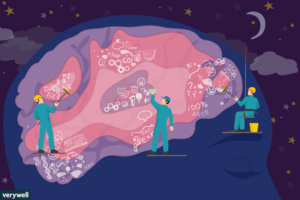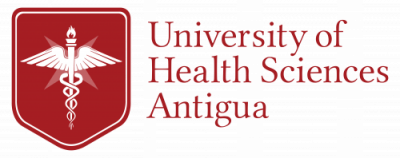
Without Enough Sleep, Performance Suffers
The story is a famous one, and it involves a third-year medical student falling asleep at a traffic light while returning from a long night on call. Police arrested the medical student because she appeared confused and disoriented, and failed their field sobriety tests. Later she was cleared when she submitted a blood sample that showed no alcohol or other illegal substances. When she was counseled by her dean, it was discovered that the student had not been getting enough sleep, which explained her actions that day at the traffic light.
And while we can’t always control nights on call, we can do our best to get enough sleep. The reason for this is not just the risk of exhaustion, medical errors, and anxiety and depression. Without enough sleep, you don’t move information from short-term to long-term memory. In other words, when you don’t sleep, you don’t learn. And when you don’t learn, you don’t perform well on exams or clinical rotations.
Sleep is critical; and without enough of it, you may very well fail in medical school.
How Much Sleep is Enough?
The National Sleep Foundation states that for optimal physical and emotional health, 7-9 hours of sleep per night is necessary for medical students.
How Can I Get Enough Sleep?
Medical students can use life hacks like relaxation apps and having a life schedule to ensure that they receive enough sleep every night. Apple iPhones even have a built-in app to help ensure you get to sleep at the same time each night to make sure you are healthy and ready to hit the books. These apps can help you identify sleep patterns, the quality of sleep you are getting, and help you change your behavior to getter better sleep.
Medical students should also ensure that they maintain good sleep hygiene, including ensuring that they use their bed for sleep only, and not a place to watch television, eat, or study. Those who do this may develop a psychological attachment between the bed and activities other than sleep, thus making it difficult to get to sleep at night.
Other sleep hygiene issues include ensuring you have a bedroom free from distractions, including noise, outside light, television playing in the background, and a comfortable temperature.
Develop a bedtime routine. You need to separate yourself psychologically from the day before you can get to sleep. Find a way to relax before bedtime, and then stick to it. For me, I like to read for thirty minutes. I prefer a book that has nothing to do with medicine. Maybe a historical novel, which I love. I turn the lights off, set my iPhone to red mode, put my Kindle or Nook app on the nighttime setting, and turn my iPhone down to the lowest light setting where I can still see the page. All of this facilitates a comfortable, relaxing, and sleep-inducing mood. And while I say I read for thirty minutes, it’s usually more like ten minutes before I slip off to sleep.
I also avoid reading the news or watching any types of videos as part of my right before bed routine! Reading news, or other stimulating material, only serves to get you worked up again, which is the opposite of your wind-down routine.
And what if you wake up in the middle of the night? Don’t touch your phone. I recommend having a low light time source in your room that you can easily look to without engaging with your phone or tablet to see the time. We all know what happens then… we look at our notifications, email alerts, text messages, and so forth. All of which turns our mind from sleep to engaged work mode. And that is not what we want.
Ready for Medical School? Want to Live Your Dream?
We know you want to be a physician. It’s probably something you have dreamed of your whole life. And who wouldn’t want to be a doctor? Physicians are widely considered one of the highest remunerated, highest respected individuals in their communities.
We have three programs to take you from dreaming to practicing:
Traditional MD Program – for those how have pre-requisites need for admission to medical school, this is the program for you.
Joint MD/MPH Program – for those who want to earn both their medical degree and a masters of public health (MPH), this is the program for you. An MPH is a highly coveted post-graduate qualification that will better equip you for careers in primary care, international health, or really any specialty.
Accelerated Premedical Program – for those who want to change careers, have always dreamt of being a physician, or are high school graduates, this program will give you the credits and background you need for direct admission to our MD program.
Contact our Admissions Team and begin your journey!

